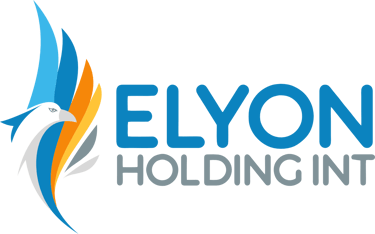The Role of Systems Thinking in African Development: Why Ownership Is the Key to Success
Discover how systems thinking and local ownership drive sustainable African development. Insights, challenges, and solutions from Elyon Holding.
BLOGS
Helio Sixpence
5/9/20252 min read


What is systems thinking in development?
Systems thinking is a holistic approach that views development projects as interconnected networks rather than isolated activities. Instead of solving problems in silos, it looks at relationships between policies, stakeholders, resources, and long-term impacts.
For Africa, this means recognizing how education, healthcare, infrastructure, and governance interact. A World Bank review found that projects designed with systems thinking are 35% more likely to achieve sustainable outcomescompared to linear, single-sector approaches.
Why is ownership critical for African development projects?
Ownership refers to the commitment of local communities, governments, and stakeholders to shape, implement, and sustain initiatives. When ownership is weak, projects often collapse once external funding ends.
According to the African Development Bank, development programs with strong local ownership have a success rate nearly double that of donor-driven projects. Ownership fosters accountability, cultural relevance, and trust — all of which increase sustainability.
How does systems thinking strengthen ownership?
Systems thinking emphasizes inclusivity by identifying all key actors — from policymakers to local communities — and aligning their goals. For example:
Governments ensure alignment with national strategies.
Communities provide cultural and contextual knowledge.
Businesses and NGOs contribute expertise and resources.
This shared responsibility builds a sense of partnership, ensuring communities feel empowered rather than sidelined.
What challenges limit ownership in African development?
Despite progress, challenges persist:
Donor-dependency: Projects led by external actors often lack local buy-in.
Short-term focus: Some initiatives prioritize quick wins over long-term capacity building.
Weak institutions: Limited governance capacity reduces accountability and follow-through.
To overcome these, systems thinking encourages adaptive strategies, continuous feedback loops, and participatory decision-making.
How can ownership and systems thinking shape Africa’s future?
By combining systems thinking with local ownership, African nations can move beyond fragmented projects toward sustainable, self-driven development. This approach helps:
Reduce reliance on external aid.
Increase resilience to global shocks (e.g., pandemics, climate change).
Empower local communities to be partners, not just beneficiaries.
Elyon Holding advocates for this model, applying Adaptive Stability frameworks that balance flexibility with long-term vision.
FAQs
Q1: What is systems thinking in simple terms?
It’s a way of solving problems by looking at the whole system and how parts interact, not just isolated issues.
Q2: Why does ownership matter in development?
Because when communities and governments are invested, projects are more sustainable and impactful.
Q3: What are examples of ownership challenges?
Donor dependency, lack of accountability, and top-down approaches that ignore local contexts.
Q4: How can African countries adopt systems thinking?
By involving diverse stakeholders, aligning with long-term goals, and building local capacity.
